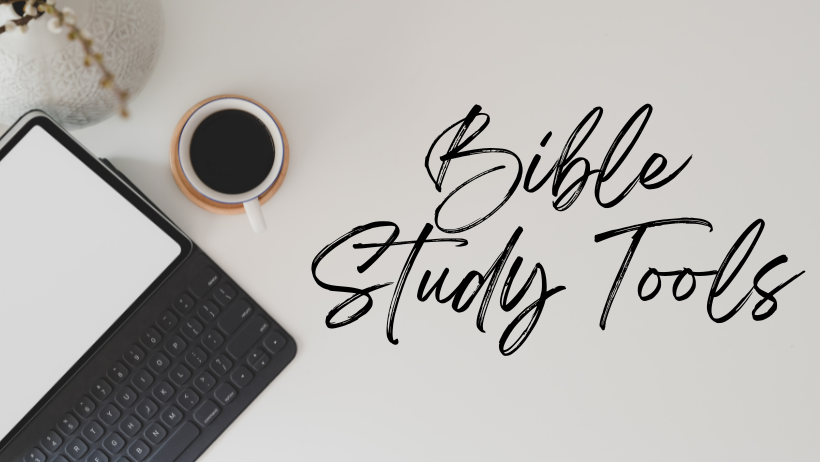There are several tools and resources that I use for my bible study that may be of help to you.
Marking Tools
I like to write in my bible. In fact, my bible is full of highlights and writing. That’s okay, but the key is writing and highlighting so that the other side of the page is not marked.
For notes in my Bible and notes in general, I use the Tul Gel Pens in 0.5 mm. Not only are these pens super thin, but they won’t mark through even with normal super-thin bible paper. I also use them for everyday purposes – they’re that good.
I use the Zebrite highlighter or the Mr. Pen No Bleed Highlighters for highlights. Both work well and will not bleed. The Zebrite is more of a typical ink marker, while the Mr. Pen is almost a wax highlighter.
Internet Resources
Of course, the Internet is a great study and reference resource, and you may want to bookmark the following:
For cross-references, I use Bible Cross Reference,
For parallel verses, I use BibleHub parallel, and
For an expanded view, I use BibleHub Context, and finally
For an interlineal view, I use BibleHubInterlinear.
Bibles
I particularly like the New American Standard Bible for readability and accuracy. Although it’s helpful to use a reference bible, a smaller New Testament with Proverbs and Psalms not only is extremely easy to read anytime and anywhere.
The Legacy Standard Bible with Psalms and Proverbs – either in Faux, Italian Cowhide, or Goatskin, these bibles are just the right size to become your everyday carry (“EDC”) bible.
Another recommendation is the ESV Study Bible, either Student or Regular edition.
References and Commentaries
For physical book resources, I use and recommend the following:
- The Macarthur Bible Commentary covers the Old and New Testaments and is probably my top resource. This is right on reformed theology.
- The Wycliffe Bible Commentary covers both the old and new Testaments and is doctrinally right on. As Macarthur’s, this is reformed.
- Commentary on the New Testament by Gundry – again, doctrinally correct and even more detailed concerning the new testament only. Again, this is reformed.
- MacArthur’s Quick Reference Guide to the Bible – this is the most concise summary of each book of the Bible and is easy read and comprehend.
- Zondervan Greek and English Interlinear New Testament (NASB/NIV) by Mounce – understanding the original Greek word and the various attributes is critical in understanding what the Bible is saying.
- Biblical Doctrine – Systematic Theology, John MacArthur – this is a comprehensive but readable treatise on systematic theology and a great reference.
- How to read the Bible for all its worth 4th Ed., by Fee and Stuart – interpreting the Bible is a science/art known as Hermeneutics. This is hermeneutics without knowing you’re studying hermeneutics.
Summary
Google, which doesn’t have the best reputation for conservatives or Christians, is surprisingly helpful for bible verses or concepts. Just ensure that you verify the resource beforehand.
Disclosure: Our website is supported by our users. We sometimes earn affiliate links when you click through the affiliate links on our website. Thanks.









